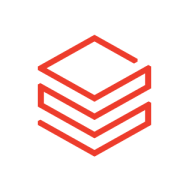

Teradata and Databricks compete in the data analytics and cloud data solutions sector. Databricks appears to have an edge due to its seamless cloud integration and machine learning capabilities.
Features: Teradata offers robust parallel processing for managing massive data volumes, supports both row and columnar partitioning, and provides comprehensive workload management. Databricks is known for its strong integration with cloud platforms, exceptional machine learning libraries, and interactive notebooks, enhancing collaboration and development efficiency.
Room for Improvement: Teradata could enhance unstructured data handling, query response times, and improve user-friendliness. Databricks might benefit from better business intelligence tool integration, improved data governance, and more flexible licensing options.
Ease of Deployment and Customer Service: Teradata offers on-premises and hybrid cloud deployment with commendable technical support, although sometimes slow. Databricks supports extensive cloud deployment and provides good support but occasionally lacks speed and ease.
Pricing and ROI: Teradata is a high-value solution best for large enterprises, but its pricing can be prohibitive for smaller companies. Databricks, with a pay-per-use model, offers cost-efficiency for scalable workloads, showcasing significant ROI through processing capabilities and innovation.
For a lot of different tasks, including machine learning, it is a nice solution.
When it comes to big data processing, I prefer Databricks over other solutions.
At least fifteen to twenty percent of our time has been saved using Teradata, which has positively affected team productivity and business outcomes.
Independent research showed that Teradata VantageCloud users achieved an average ROI of 427% across three years with payback under a year, demonstrating the platform's ability to deliver a strong financial return.
We have realized a return on investment, with a reduction of staff from 27 to eight, and our current return on investment is approximately 14%.
Whenever we reach out, they respond promptly.
As of now, we are raising issues and they are providing solutions without any problems.
I rate the technical support as fine because they have levels of technical support available, especially partners who get really good support from Databricks on new features.
The customer support for Teradata has been great.
They are responsive and knowledgeable, and the documentation is very helpful.
Customer support is very good, rated eight out of ten under our essential agreement.
The patches have sometimes caused issues leading to our jobs being paused for about six hours.
Databricks is an easily scalable platform.
I would rate the scalability of this solution as very high, about nine out of ten.
Whenever we need more resources, we can add that in Teradata, and when not needed, we can scale it down as well.
This flexibility allows organizations to scale according to their needs, balancing performance, cost, and compliance requirements.
This expansion can occur without incurring downtime or taking systems offline.
They release patches that sometimes break our code.
Although it is too early to definitively state the platform's stability, we have not encountered any issues so far.
Databricks is definitely a very stable product and reliable.
Its massively parallel process architecture allows the platform to distribute workload efficiently, enabling organizations to run heavy analytic queries without compromising speed or stability.
I find the stability to be almost a ten out of ten.
The workload management and software maturity provide a reliable system.
Adjusting features like worker nodes and node utilization during cluster creation could mitigate these failures.
We prefer using a small to mid-sized cluster for many jobs to keep costs low, but this sometimes doesn't support our operations properly.
We use MLflow for managing MLOps, however, further improvement would be beneficial, especially for large language models and related tools.
I want to highlight two features for improvement: first, storing data in various formats without requiring a tabular structure, accommodating unstructured data; and second, adding AI ML features to better integrate Gen AI, LLM concepts, and user-friendly experiences such as text-to-SQL capabilities.
Unlike SQL and Oracle, which have in-built replication capabilities, we don't have similar functionality with Teradata.
The most challenging aspect is finding Teradata resources, so we are focusing on internal training and looking for more Teradata experts.
It is not a cheap solution.
Teradata is much more expensive than SQL, which is well-performed and cheaper.
Initially, it may seem expensive compared to similar cloud databases, however, it offers significant value in performance, stability, and overall output once in use.
Role-based access control (RBAC), strong audit and compliance features, high availability, fault tolerance, and encrypted data at rest and in-transit are key features.
Databricks' capability to process data in parallel enhances data processing speed.
The platform allows us to leverage cloud advantages effectively, enhancing our AI and ML projects.
The Unity Catalog is for data governance, and the Delta Lake is to build the lakehouse.
Teradata's security helps our organization meet compliance requirements such as GDPR and IFRS, and it is particularly essential for revenue contracting or revenue recognition.
Its architecture allows information to be processed efficiently while maintaining stable performance, even in highly demanding environments.
It facilitates data integration, where we integrate and analyze data from various sources, making it a powerful and high-quality reliable solution for the company.
| Product | Market Share (%) |
|---|---|
| Teradata | 8.5% |
| Databricks | 9.2% |
| Other | 82.3% |


| Company Size | Count |
|---|---|
| Small Business | 25 |
| Midsize Enterprise | 12 |
| Large Enterprise | 56 |
| Company Size | Count |
|---|---|
| Small Business | 28 |
| Midsize Enterprise | 13 |
| Large Enterprise | 52 |
Databricks offers a scalable, versatile platform that integrates seamlessly with Spark and multiple languages, supporting data engineering, machine learning, and analytics in a unified environment.
Databricks stands out for its scalability, ease of use, and powerful integration with Spark, multiple languages, and leading cloud services like Azure and AWS. It provides tools such as the Notebook for collaboration, Delta Lake for efficient data management, and Unity Catalog for data governance. While enhancing data engineering and machine learning workflows, it faces challenges in visualization and third-party integration, with pricing and user interface navigation being common concerns. Despite needing improvements in connectivity and documentation, it remains popular for tasks like real-time processing and data pipeline management.
What features make Databricks unique?
What benefits can users expect from Databricks?
In the tech industry, Databricks empowers teams to perform comprehensive data analytics, enabling them to conduct extensive ETL operations, run predictive modeling, and prepare data for SparkML. In retail, it supports real-time data processing and batch streaming, aiding in better decision-making. Enterprises across sectors leverage its capabilities for creating secure APIs and managing data lakes effectively.
Teradata is a powerful tool for handling substantial data volumes with its parallel processing architecture, supporting both cloud and on-premise environments efficiently. It offers impressive capabilities for fast query processing, data integration, and real-time reporting, making it suitable for diverse industrial applications.
Known for its robust parallel processing capabilities, Teradata effectively manages large datasets and provides adaptable deployment across cloud and on-premise setups. It enhances performance and scalability with features like advanced query tuning, workload management, and strong security. Users appreciate its ease of use and automation features which support real-time data reporting. The optimizer and intelligent partitioning help improve query speed and efficiency, while multi-temperature data management optimizes data handling.
What are the key features of Teradata?
What benefits and ROI do users look for?
In the finance, retail, and government sectors, Teradata is employed for data warehousing, business intelligence, and analytical processing. It handles vast datasets for activities like customer behavior modeling and enterprise data integration. Supporting efficient reporting and analytics, Teradata enhances data storage and processing, whether deployed on-premise or on cloud platforms.
We monitor all Cloud Data Warehouse reviews to prevent fraudulent reviews and keep review quality high. We do not post reviews by company employees or direct competitors. We validate each review for authenticity via cross-reference with LinkedIn, and personal follow-up with the reviewer when necessary.